Six months from the screenplay’s initial words to completion of a four-part TV series: four Film Academy Vienna students took up this challenge and produced the series Prost Mortem – Die letzte Runde. Director Michael Podogil, screenwriter Matthias Writze, editor Sebastian Schreiner, and producer Lukas Zweng spoke with mdw Magazine about their TV project’s parameters and peculiarities.
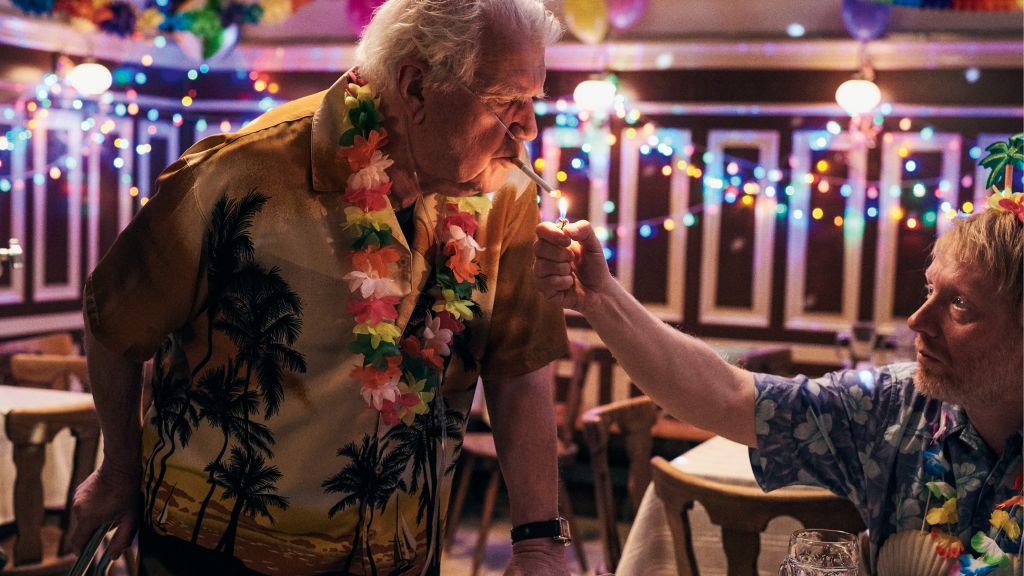
Post Mortem is an Austrian-German mystery series that’s piled high with black humour: Werner, the husband of restaurant proprietor Gitti, has been found dead in the restroom. Gitti doesn’t believe that he’s killed himself; she thinks it was murder. She hence invites back all the guests who were at her place that tragic night for a last round, during which she undertakes her own bit of sleuthing to find out which of them killed her husband. The interrogations by the restaurant proprietor, played by Doris Kunstmann in a dramatic tour de force, bring to light various secrets about the guests. There’s the alcoholic regular Bernie (played by Simon Schwarz). Then there’s the ambitious politician Eva (played by Elke Winkens), who’s simultaneously the deceased’s sister. And there’s also Eva’s young assistant and lover Steven (Timur Bartels) as well as the waitress Zoe (Janina Fautz). The entire plot plays out at a charming watering hole called “Bierkavalier”, and flashbacks show viewers more about the protagonists and the events that led up to Gitti’s tragic loss.
“It was a picture-book phone call,” says Michael Podogil when describing how cable broadcaster 13th Street’s commission to produce this series originated.

Podogil, who directed it and wrote the script together with Matthias Writze, was already a familiar face since he and his team had won the channel’s short film competition Shocking Shorts in 2018 with their film Fucking Drama. What’s more, most of the people who’d done Fucking Drama were also on board for Prost Mortem. This well-oiled team mastered the challenge represented by their project’s tight schedule of just six months by writing the screenplay, seeking out the location, and casting the actors simultaneously, rather than sequentially like in other projects. An essential task was to find the filming location, since the plot unfolds in one single place and the brief production period didn’t allow for the construction of additional set elements or studio filming.
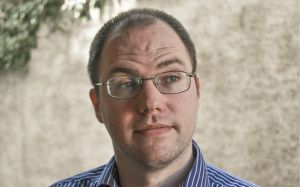
To this end, producer Lukas Zweng set out together with set designer Winnie Küchl and cameraman Valentin Lilgenau on a tour of Vienna’s abandoned restaurants and bars. They eventually hit upon a place that met their requirements, and since the script was still being authored at this point, the story could be “written into” the newfound set.
By virtue of its focus on just one place and the small number of actors involved, their series ended up as something of a chamber drama. “The great thing was that we knew what conditions we’d be filming in, so we could write the script in a way that made it possible to film it within a very short period,” says author Matthias Writze.
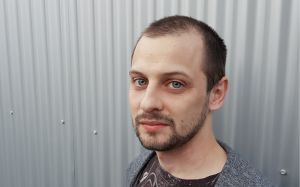
For this entire series, which lasts a total of 80 minutes, the team had a mere 15 days of filming. By way of comparison: for the 17 minutes of the short film Fucking Drama they had a full five days, and a typical made-for-TV movie requires around 20 days of filming. Another thing that was key to filming this series within such a short window of time was exacting preliminary work. “Here on the production end, we did a lot of thinking beforehand about how we could squeeze the greatest amount of actual filming time out of those 15 days,” explains Lukas Zweng. The lighting and camera concepts were planned in such detail that setup and takedown times were reduced to a minimum. And another time-saving measure was beginning the editing process while the film was still being shot. What’s more, working in parallel “also made it possible to exchange ideas about what pickup shots we might end up needing to do,” explains editor Sebastian Schreiner.
On writing the script itself, Matthias Writze recalls the following: “One interesting thing is that we didn’t do it like they normally do in detective shows: instead of developing the murder case first, we started with the characters and constellations and only then figured out the murder.” And it helped to begin developing all this material with archetypes—such as that of the politician and her young lover-/assistant. The focus on character development instead of on the murder itself was for good reason. “The cases in German and Austrian detective series have already been repeated a gazillion times, and we didn’t want to reinvent the wheel,” says Lukas Zweng. So instead, the team prepared by studying Agatha Christie movies in an attempt to understand how the architecture of their crime cases had been designed. In the mysteries by Agatha Christie, the elderly self-styled detective Miss Marple investigates various cases on her own initiative, not unlike Gitti in Prost Mortem.
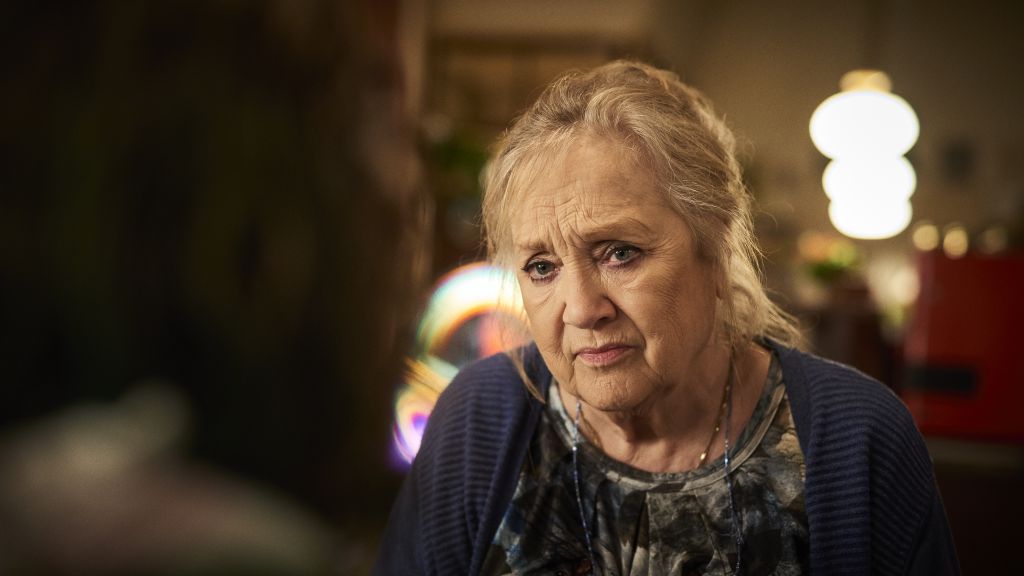
Doris Kunstmann, whom they approached with an initial, incomplete version of the script, was quick to declare her willingness to play Gitti. And for the other characters, as well, they did without a classic casting process. 13th Street stipulated that the various roles had to be divided between Austrian and German actors. “The yesses we received from actors like Doris Kunstmann and Simon Schwarz were particularly motivating for us, since we’d hardly had time to reflect on whether they might actually like the material—so their agreements to participate were like compliments and a pat on the back for us,” recalls Lukas Zweng.
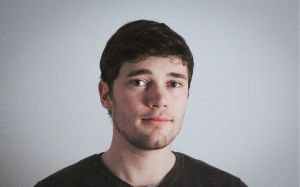
“And it’s always interesting to see how you first develop a character that then gets cast with an actor, who adds value to the whole thing and ends up changing your perspective on the character yet again. The important thing is to remain open during the entire process and be grateful for it,” says Michael Podogil.
The team felt good working together with the station, whose editorial staff helped them lend each episode some additional refinement. “It was interesting and enriching to see what the people from the station were focussed on,” says Sebastian Schreiner in summary.
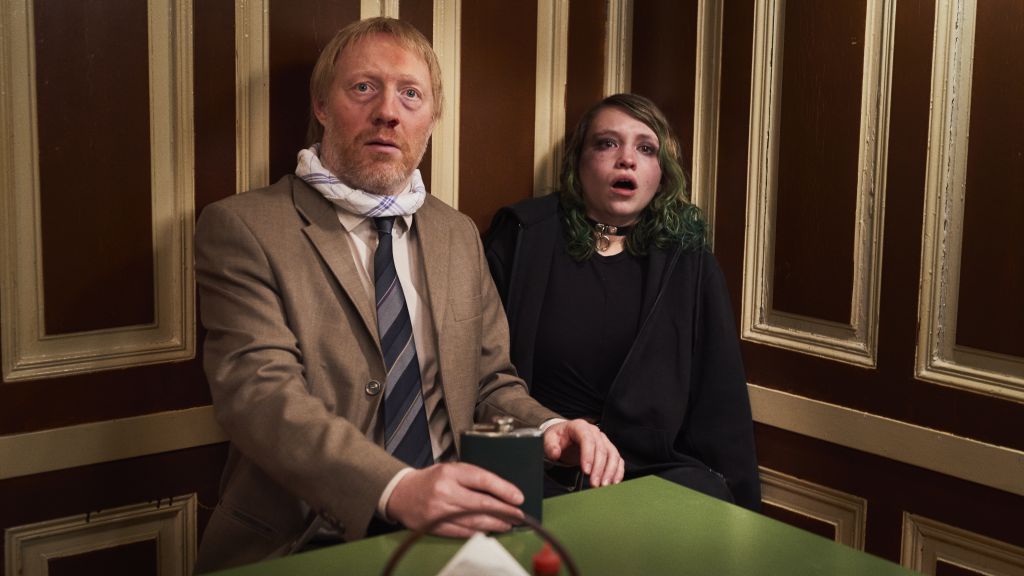
Prost Mortem was very well received by critics, and the series celebrated its free TV première on the station Puls 4 in February. Such success amounts to an endorsement of this Film Academy team’s approach, and it’s left them eager to take on new (record-time) projects together.
Availability: this series can be streamed via Sky on demand

